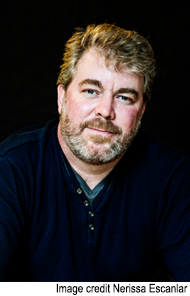
|
Name |
Hernlund, John |
|---|---|
|
Position |
Principal Investigator (Associate Director, Professor) |
|
Research Field |
Geophysical modeling |
|
|
hernlund_at_elsi.jp hernlund_at_gmail.com |
|
Web Page |
https://members.elsi.jp/~hernlund/ |
|
Google Scholar Profile |
https://scholar.google.com/citations?user=sSQcSAUAAAAJ&hl=en |
Awards
Jason Morgan Early Career Award, Tectonophysics Section, American Geophysical Union, 2010.
Durk Doornbos Memorial Prize, International Union of Geodesy and Geophysics Committee on Study of the Earth’s Deep Interior, 2008.
Research Interests
In order to understand the manner in which Earth and other planets formed and evolved through time, we develop and explore quantitative models describing the major physical and chemical processes governing their evolution. Our ultimate goal is to establish firm links between planetary formation and the presently observed geological and seismological structures of the Earth, in addition to its chemical and isotopic composition. Improving astronomical observations also allow us to compare our solar system to others, and to better understand our home planet in the context of other stellar systems. I focus particular attention toward developing key constraints for our models by integrating mineral physics experiments and theories, understanding the trade-offs between hypotheses and uncertainties in processes and material properties operating in a variety of different regions of Earth’s interior, and by integrating geochemistry and seismology into model outcomes in order to test key hypotheses against observations. The physical problem is extremely rich because the relevant physics spans length scales from small mineral grains to the entire planet. A large range of techniques are used, ranging from laboratory experiments to numerical models run on super-computers.
You are invited to join me at the Earth Life Science Institute in Tokyo, my door is always open to researchers from all scientific disciplines. Many different skills are required to make progress on the Earth formation and evolution problem; no single researcher possesses all the requisite skills. Many important new insights can be gained by combining different perspectives and approaches. Accordingly, I am highly interested in multi-disciplinary collaboration, and I wish to work closely with natural scientists of all flavors in order to understand the myriad connections between processes that are important determinants in understanding the origin and evolution of Earth and life.
